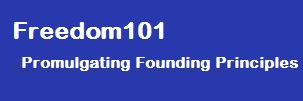Here are some of these checks and balances believed so important to individual liberty, implemented in our constitution:
- HOUSE (peoples representatives) is a check on SENATE – no statute becomes law without its approval.
- SENATE is a check on HOUSE – no statute becomes law without its approval. (Prior to 17th Amendment, SENATE was appointed by State legislatures as a protection for states’ rights – another check the Founders provided.)
- EXECUTIVE (President) can restrain both HOUSE and SENATE by using Veto Power.
- LEGISLATIVE (Congress – Senate & House) has a check on EXECUTIVE by being able to pass, with 2/3 majority, a bill over President’s veto.
- LEGISLATIVE has further check on EXECUTIVE through power of discrimination in appropriation of funds for operation of EXECUTIVE.
- EXECUTIVE (President) must have approval of SENATE in filling important posts in EXECUTIVE BRANCH.
- EXECUTIVE (President) must have approval of SENATE before treaties with foreign nations can be effective.
- LEGISLATIVE (Congress) can conduct investigations of EXECUTIVE to see if funds are properly expended and laws enforced.
- EXECUTIVE has further check on members of LEGISLATIVE (Congress) in using discretionary powers in decisions regarding establishment of military bases, building & improvement of navigable rivers, dams, interstate highways, etc., in districts of those members.
- JUDICIARY is check on LEGISLATIVE through its authority to review all laws and determine their constitutionality.
- LEGISLATIVE (Congress) has restraining power over JUDICIARY, with constitutional authority to restrict extent of its jurisdiction.
- LEGISLATIVE has power to impeach members of JUDICIARY guilty of treason, high crimes, or misdemeanors.
- EXECUTIVE (President) is check on JUDICIARY by having power to nominate new judges.
- LEGISLATIVE (Senate) is check on EXECUTIVE and JUDICIARY having power to approve/disapprove nominations of judges.
- LEGISLATIVE is check on JUDICIARY – having control of appropriations for operation of federal court system.
- LEGISLATIVE (Peoples Representatives) is check on both EXECUTIVE and J U DICIARY through power to initiate amendments to Constitution subject to approval by 3/4 of the States.
- LEGISLATIVE (Senate) has power to impeach EXECUTIVE (President) with concurrence of 2/3, of members.
- The PEOPLE, through their State representatives, may restrain the power of the federal LEGISLATURE if 3/4 of the States do not ratify proposed Constitutional Amendments.
- LEGISLATIVE, by Joint Resolution, can terminate certain powers granted to EXECUTIVE (President) (such as war powers) without his consent.
- It is the PEOPLE who have final check on both LEGISLATIVE and EXECUTIVE when they vote on their Representatives every 2 years, their Senators every 6 years, and their President every 4 years. Through those selections, they also influence the potential makeup of the JUDICIARY.
Courtesy of the National Center for Constitutional Studies (www.nccs.net)
